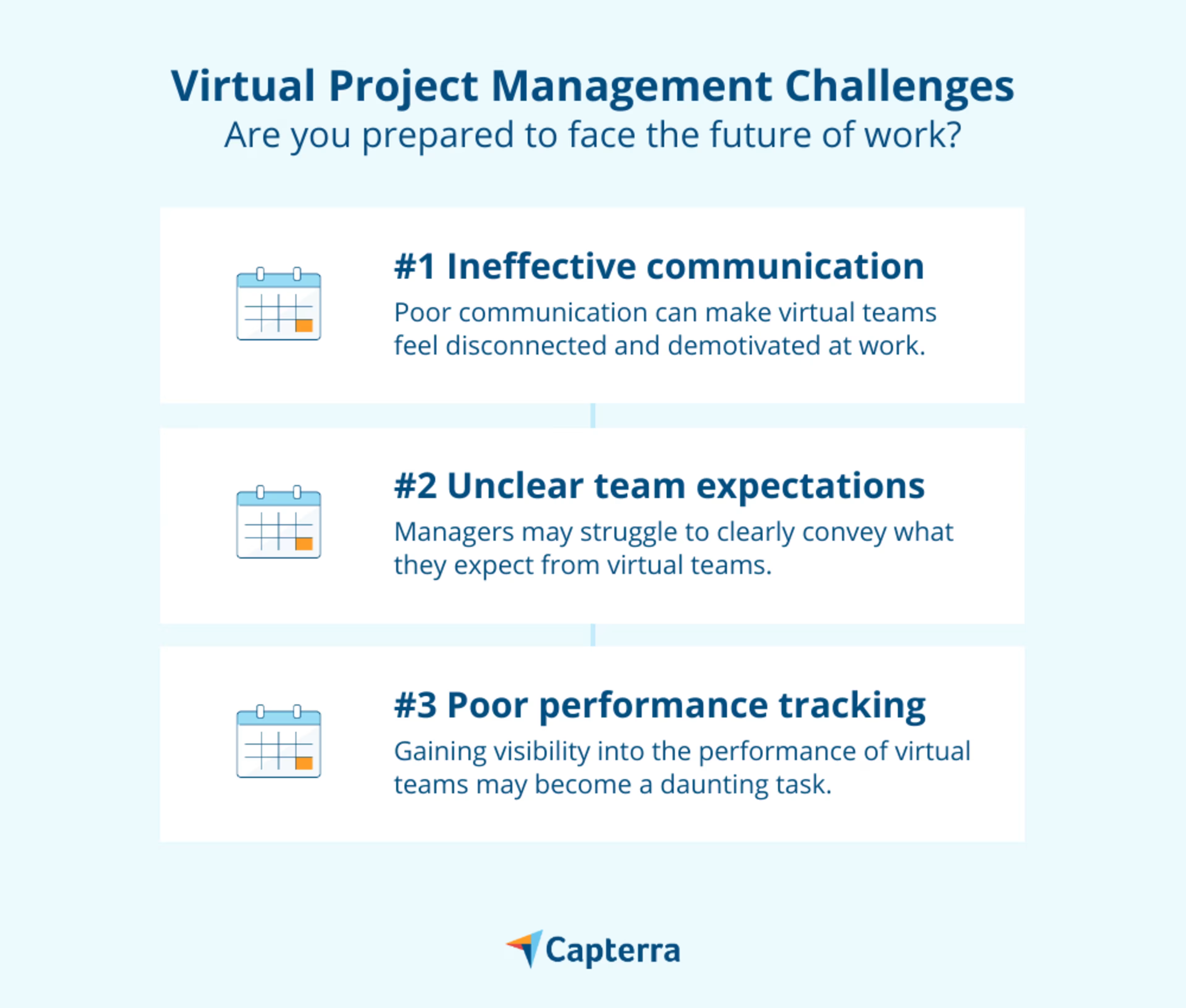As remote work becomes more of a reality than a passing trend, project managers are going to need newer strategies to manage virtual teams.

As I begin to write this article, sitting in my living room, I imagine how the lives of millions of working people like myself have suddenly changed because of COVID-19. Each of us in our own ways have become practitioners of virtual project management: holding our daily standup meetings online, checking comments on team chats for work updates, and confirming our daily schedule on digital calendars.
While it’s a good thing being a part of a team that’s great at working virtually, sometimes I do miss walking up to a colleague to clarify a doubt or just chat about the next office party. These are only distractions that will settle with time, I know, but is that going to make things any easier for my manager who handles a team of 20 and coordinates on several projects each day?
No—it will get tougher, because remote working is not going to fade away, and the newer generation that will replace many of us at workplaces is going to demand it as part of company culture rather than a convenient benefit. Generation Z—those born between the mid-to-late 1990s and early 2010s—has a strong preference for remote work, and Gartner states that by 2030, that preference will increase the demand by 30% (full content available to Gartner clients only).
So, if you’re a project manager, a team manager, a team leader, or someone of that sort, you need to be prepared to handle what’s coming your way. We’ve drilled down to the three most common challenges of virtual project management and the strategies to overcome them.

Challenge #1: Ineffective communication
Communication is a challenge for a virtual team as they don't have the opportunity to interact with their colleagues or managers as frequently as a co-located team could. This can leave team members feeling disconnected and lead to poor communication within the team.
As a result, important project communication can be overlooked, not necessarily owing to neglect by employees but because the channels and processes of communication are not conducive to virtual project management.
How you can overcome it
As a manager, you should strive to facilitate communication by creating an environment of information transparency and providing the team with the right communication tools.
Create information transparency: Managing a virtual team requires doubling down on the efforts to keep the channels of communication open. This means you should communicate with team members more often, encouraging them to ask questions on process workflows and collaboratively finding solutions to bottlenecks and issues.
You should also discuss the weaknesses and strengths of team members during meetings and assign projects accordingly. Lastly, there should be initiatives such as peer-to-peer connections to foster skill and knowledge sharing.
Empower teams with the right tools: While email is a common tool for team communication, you should look beyond it and include tools such as web conferencing software, online whiteboard software, and instant messaging tools to bolster team communication.
Web conferencing and whiteboard tools, for instance, can help your team members hold online meetings and brainstorm on projects. On the other hand, an instant messaging app will allow team members to connect directly with each other and discuss projects.
Challenge #2: Unclear team expectations
With communication being a challenge, managers often struggle to convey their expectations to a virtual team. On the other hand, teams struggle to communicate the confusion around their roles and responsibilities.
With an unclear idea of the goals and actions, inefficiency creeps in as people begin to follow different processes to do similar work. In addition, there will be conflicts arising out of the fundamental misunderstanding about a project’s key deliverables.
How you can overcome it
To ensure everyone has a clear picture of the overall purpose of a project, lay down clear guidelines on expected team behavior and conduct frequent meetings to clarify team roles and responsibilities.
Regularly update the team about their responsibilities: You need to regularly discuss what you expect from your team members. This includes reiterating individual responsibilities and how each of them is critical to attaining the long-term business goals as well as short-term deliverables.
At the start of a new project, clearly plan the schedule and outline the volume of work that each member is expected to deliver every day. Lastly, hold virtual team meetings specifically for clarifying whether team members are properly aligned to their roles.
Define and apply remote work best practices: When managing a virtual project team, it is critical to offer clear guidelines to the remote team. You can organize online meetings to bring consensus on topics such as preferred communication channels, expected behavior (such as staying available on team messaging platforms), and collaborative practices (such as actively participating in online team events).
Further, you should provide clear guidelines on how and whom to ask questions regarding conflicts, leave management, and other process issues that can affect team collaboration.
Challenge #3: Poor performance tracking
Within a remote team, it’s easy to not have visibility into the everyday performance of each team member. What managers get to see is generally the completed work, which can become a hindrance if team members are constantly missing project deadlines or delivering sub-optimal quality work.
However, managers prying into the progress of what team members are doing every hour is also a recipe for conflicts. Micromanagement is not the answer; what is essential is that managers get adequate visibility into team performance to offer regular constructive feedback.
How you can overcome it
To ensure team members perform to the best of their abilities, you should conduct trust-building exercises and hold regular performance discussions.
Have regular performance discussions: Regular performance discussions are doubly beneficial. Firstly, they will let you inform team members whether they are on the right track and offer specific recommendations for improvement. Secondly, team members get the opportunity to express the challenges they are facing in their day-to-day job and seek resolution.
However, for performance discussions to be effective they must be holistic and include feedback from not only you but also from peer groups and other key stakeholders.
Strengthen team trust: Trust-building exercises are proven tools to having more productive and engaged team members. With a virtual team, such exercises need to be more frequent.
One of the ways to strengthen team trust is to acknowledge every small win of team members and recognize their effort and hard work. Sharing achievements publicly while offering constructive feedback in private is a time-tested method to boost team morale and confidence. Following recognitions with awards and promotions wherever possible will surely win extra points.
Conclusion
Whether you like it or not, virtual project management is here to stay. As more of Gen Z joins the workforce, the number of team members working virtually will increase.
What is clear is that businesses need to figure out new strategies to improve the productivity of their virtual teams. Whether it's supporting teams with remote work technologies, changing process workflows to meet the needs of a geographically-dispersed team, or redefining team communication strategies, businesses need to prepare for the changing face of how we work.